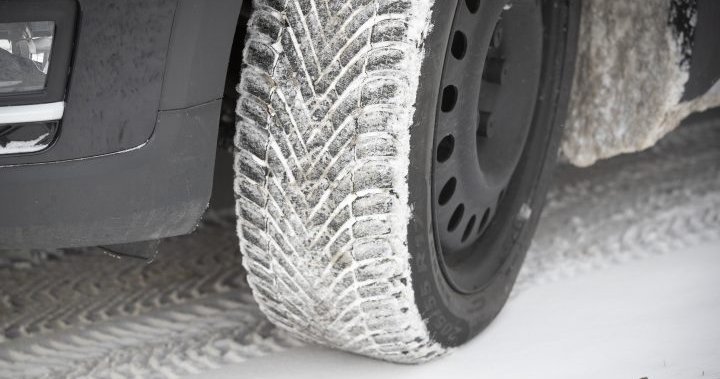The harsh winter conditions in Manitoba, notorious for snow and ice, necessitate appropriate vehicle preparation for safe driving. While winter tires significantly enhance safety, their cost poses a barrier for many. Jason Dibartolo, owner of a Winnipeg Fountain Tire branch, estimates the average price of a set of winter tires at $1,500 to $1,700, a figure influenced by industry-wide price increases following the COVID-19 pandemic. Despite the cost, Dibartolo emphasizes the essential nature of winter tires, comparing them to necessities like food and gas. He underscores their significant improvement in stopping, turning, and accelerating capabilities, particularly crucial in emergency situations like panic stops or navigating icy corners.
Data substantiates the safety benefits of winter tires. Manitoba Public Insurance (MPI) reports that vehicles equipped with winter tires have 6.3% fewer claims and 5.7% fewer severe claims compared to those without. This data underscores the operational advantages of using winter tires, making a compelling case for their adoption. CAA Manitoba further reinforces this point, highlighting that winter tires can reduce braking distance by up to 25%, equivalent to two car lengths. Considering the average cost of a minor fender bender surpasses $5,000, investing in winter tires presents a strong economic argument alongside safety considerations.
Despite the compelling evidence supporting winter tire usage, not all Winnipeg residents choose to equip their vehicles. Affordability remains a significant hurdle, compounded by factors such as convenience and individual comfort levels driving on all-season or all-weather tires. However, experts maintain that the specialized materials used in winter tire construction enhance safety in cold weather driving, justifying the higher price point. Research and development contribute to the varying quality and cost between different winter tire brands. Dibartolo explains that while both entry-level and high-end winter tires offer initial performance improvements, the latter demonstrate greater longevity and sustained performance due to superior compounds that retain their effectiveness throughout the tire’s lifespan.
To address the financial constraints associated with purchasing winter tires, MPI offers a financing program called the “Winter Tire Program.” This initiative aims to make winter tires more accessible to Manitoba residents. Since its inception in 2014, the program has provided over 240,000 loans, with increasing utilization over the years. Dibartolo’s shop, among 800 retailers participating in the program, processes numerous applications daily, highlighting the program’s popularity and positive impact on road safety. He advocates for the program as a valuable alternative to a mandatory winter tire policy, like the one in Quebec, emphasizing its effectiveness in equipping more vehicles for Manitoba’s demanding winter conditions.
Eligibility for the Winter Tire Program requires applicants to be non-corporate MPI customers, intending to purchase winter tires for a passenger vehicle or light truck, and having no outstanding payments or financing restrictions on their MPI account. While financial assistance programs can alleviate the cost burden, responsible driving practices remain paramount regardless of tire type. CAA Manitoba emphasizes that winter tires do not negate the importance of attentive driving and adjusting speed according to prevailing weather conditions. Safe driving practices remain crucial even with enhanced tire performance.
Ultimately, the decision to invest in winter tires is a personal one. Experts, however, strongly advocate for informed decision-making, emphasizing the substantial safety benefits of winter tires. While some drivers feel confident with their current tires and adapt their driving habits to winter conditions, others prioritize the added security and confidence that winter tires provide, especially after experiencing close calls or feeling apprehensive about driving in challenging weather. Despite personal preferences, the consensus among experts is that winter tires make a significant difference in winter driving safety, ultimately contributing to safer roads for everyone.










